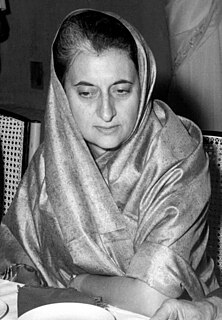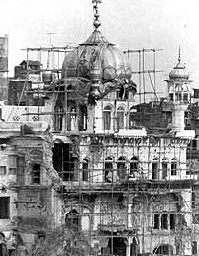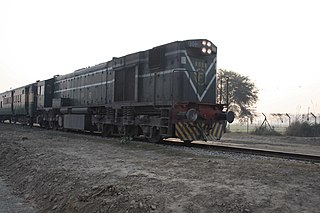 W
WThe 1980 Moradabad riots, also known as the Moradabad Muslim Massacre, refers to violence that happened in the Indian city of Moradabad during August–November 1980. The violence was partly a Hindu-Muslim conflict, and partly a Muslim-Police conflict. It started when a group of Muslims pelted stones at the local police for their refusal to remove a pig from the local Idgah on 13 August. The police responded with indiscriminate firing, which led to over one hundred deaths. This was followed by a series of violent incidents which became religious in nature, and led to arson, looting and murders.
 W
WThe Delhi Agreement was a trilateral agreement signed between India, Pakistan and Bangladesh on 28 August 1973; and ratified only by India and Pakistan. It allowed the repatriation of prisoners of war and interned officials held in the three countries after the 1971 Bangladesh Liberation War. The agreement has been criticised for Pakistan's failure to repatriate Urdu-speakers in Bangladesh and not holding to account 195 senior military officials accused of breach of conduct during war.
 W
WThe Eighteenth Amendment of the Constitution of India, officially known as The Constitution Act, 1966, amended article 3 of the Constitution in order to clarify the "State" in clauses (a) to (e) of that article include "Union territories". It also added another "Explanation" that the power conferred on Parliament by clause (a) includes the power to form a new State or Union territory by uniting a part of any State or Union territory to any other State or Union territory.
 W
WThe Enemy Property Act, 1968 is an Act of the Parliament of India, which enables and regulates the appropriation of property in India owned by Pakistani nationals. The act was passed following the Indo-Pakistani War of 1965. Ownership is passed to the Custodian of Enemy Property for India, a government department. There are also movable properties categorized as enemy properties.
 W
WIndira Gandhi was sworn in as Prime Minister of India for the first time on 24 January 1966. In her ministry, the ministers were as follows.
 W
WThe Forty-eighth Amendment of the Constitution of India, officially known as The Constitution Act, 1984, inserted a new proviso in clause (5) of article 356 of the Constitution in order to provide that in the case of the Proclamation issued by the President on 6 October 1983 with respect to the State of Punjab, Parliament may pass any resolution with respect to the continuance in force of the Proclamation for a period up to two years.
 W
WThe Forty-fifth Amendment of the Constitution of India, officially known as The Constitution Act, 1980, extended the period of reservation of seats for the Scheduled Castes and Scheduled Tribes and representation of the Anglo-Indians in the Lok Sabha and the State Legislative Assemblies for another ten years, i.e. up to 26 January 1990.
 W
WThe Forty-first Amendment of the Constitution of India, officially known as The Constitution Act, 1976, changed the age of retirement of the Chairman and members of the State Public Service Commissions from 60 to 62 years, by amending article 316(2) of the Constitution.
 W
WThe 42nd amendment, officially known as The Constitution Act, 1976, was enacted during the Emergency by the Indian National Congress government headed by Indira Gandhi.
 W
WThe Forty-seventh Amendment of the Constitution of India, officially known as The Constitution Act, 1984, amended the Ninth Schedule to the Constitution, and added 14 legislations relating to land reforms, enacted by the States of Assam, Bihar, Haryana, Tamil Nadu, Uttar Pradesh and West Bengal and the union territory of Goa, Daman and Diu with a view to provide that the enactments shall not be deemed to be void on the ground that they are inconsistent with any of the provisions of Part III of the Constitution relating to Fundamental Rights.
 W
WThe Gold (Control) Act, 1968 is a repealed Act of the Parliament of India which was enacted to control sale and holding of gold in personal possession. However excessive demand for gold in India with negligible indigenous production is met with gold imports leading to drastic devaluation of Indian rupee and depletion of foreign exchange reserves to alarming levels. Devaluation of Indian rupee is also leading to steep rise in food commodity prices due to costlier petroleum products imports. In these circumstances, the gold import policy of India aims at curbing the gold imports to manageable level time to time by imposing taxes and legal restrictions.
 W
WThe Green Revolution in India refers to a period when Indian agriculture was converted into an industrial system due to the adoption of modern methods and technology such as the use of high yielding variety (HYV) seeds, tractors, irrigation facilities, pesticides, and fertilizers. It was mainly found by M.S. Swaminathan. This was part of the larger Green revolution endeavor initiated by Norman Borlaug, which leveraged agricultural research and technology to increase agricultural productivity in the developing world.
 W
WOn 24 August 1984, Seven young hijackers demanded an Indian Airlines jetliner Airbus A300, on a domestic flight from Chandigarh to Srinagar with 100 passengers on board, be flown to the United States. The plane was taken to Lahore and then to Karachi and finally to Dubai where the defense minister of UAE negotiated the release of the passengers.
 W
WOn 29 September 1981, an Indian Airlines Boeing 737 IC423 flight from Srinagar to Delhi was hijacked by Sikh extremists to get appropriate rights from India and taken to Lahore, Pakistan. The plane had 111 passengers and 6 crew members on board. Five Sikh separatists of Dal Khalsa armed with knives had hijacked the plane. Dal Khalsa had been demanding a separate Sikh homeland of Khalistan. The aircraft on its way to New Delhi was rerouted to Lahore. The leader of the hijackers, Gajender, Singh talked to Natwar Singh, India's ambassador in Pakistan and put forward his demands.
 W
WThe Nineteenth Amendment of the Constitution of India, officially known as The Constitution Act, 1966, abolished Election Tribunals in India and enabled trial of election petitions by High Courts. It amended clause (1) of article 324 of the Constitution, which provides for vesting of the power of superintendence, direction and control of elections with the Election Commission. The 19th Amendment removed the provision relating to the power of "the appointment of election tribunals for the decision of doubts and disputes arising out of or in connection with elections to Parliament and to the Legislatures of States".
 W
WOperation Blue Star was the code name for an Indian military action carried out between 1 and 8 June,1984, to capture Sikh leader Sant Jarnail Singh Bhindranwale and his followers along with demolition of the buildings of Harmandir Sahib complex in Amritsar, Punjab. The decision to launch the attack rested with Prime Minister Indira Gandhi, who, according to retired general S.K. Sinha, had been considering the operation for more than 18 months prior, authorizing army preparation for it long before any insurgents were in the complex. In July 1982, Harchand Singh Longowal, the President of the Sikh political party Akali Dal, had invited Bhindranwale to take up residence in the Golden Temple Complex to evade demolition of Sri Akal Takht Sahib. The government said that Bhindranwale later turned the sacred temple complex into an armoury and headquarters.
 W
WOperation Flood, launched on 13 January 1970, was the world's largest dairy development program and a landmark project of India's National Dairy Development Board (NDDB). It transformed India from a milk-deficient nation into the world's largest milk producer, surpassing the United States of America in 1998 with about 17 percent of global output in 2010–11. Within 30 years, it doubled the milk available per person in India and made dairy farming India's largest self-sustainable rural employment generator. It was launched to help farmers direct their own development and giving them control of the resources they create. All this was achieved not merely by mass production, but by production by the masses; the process has since been termed as the White Revolution.
 W
WA Naxal or Naxalite is a member of any political organisation that claims the legacy of the Communist Party of India (Marxist–Leninist), founded in Calcutta in 1969. The Communist Party of India (Maoist) is the largest existing political group in that lineage today in India.
 W
WThe Samjhauta Express is a bi-weekly train — Thursday and Monday — that runs between Delhi and Attari in India and Lahore in Pakistan. The word Samjhauta means "agreement", "accord" and "compromise" in both Hindi and Urdu.
 W
WIndira Gandhi sworn in as Prime Minister of India on 24 January 1966. Her second term started on 16 March 1971.
 W
WThe Thirty-eighth Amendment of the Constitution of India, officially known as The Constitution Act, 1975, made the declaration of "The Emergency" final and conclusive. In particular it codified and enlarged the State's power to remove fundamental rights from its citizens during states of emergency.
 W
WThe Twentieth Amendment of the Constitution of India, officially known as The Constitution Act, 1966, inserted a new article 233A inter alia validating the appointments, postings, promotions, and transfers of and judgements, delivered before the commencement of the present Act, by district judges who were appointed, posted, promoted or transferred as a district judge in any State otherwise than in accordance with the provisions of article 233 or article 235 of the Constitution.
 W
WThe Twenty-fifth Amendment of the Constitution of India, officially known as The Constitution Act, 1971, curtailed the right to property, and permitted the acquisition of private property by the government for public use, on the payment of compensation which would be determined by the Parliament and not the courts. The amendment also exempted any law giving effect to the article 39(b) and (c) of Directive Principles of State Policy from judicial review, even if it violated the Fundamental Rights.
 W
WThe Twenty-first Amendment of the Constitution of India, officially known as The Constitution Act, 1967, amended the Eighth Schedule to the Constitution so as to include Sindhi as one of the languages, thereby raising the total number of languages listed in the schedule to fifteen. The Eighth Schedule lists languages that the Government of India has the responsibility to develop.
 W
WThe Twenty-fourth Amendment of the Constitution of India, officially known as The Constitution Act, 1971, enables Parliament to dilute Fundamental Rights through Amendments of the Constitution. It also amended article 368 to provide expressly that Parliament has power to amend any provision of the Constitution. The amendment further made it obligatory for the President to give his assent, when a Constitution Amendment Bill was presented to him.
 W
WThe Twenty-second Amendment of the Constitution of India, officially known as The Constitution Act, 1969, inserted new article 244A in the Constitution to empower Parliament to enact a law for constituting an autonomous State within the State of Assam and also to provide the autonomous State with Legislature or a Council of Ministers or both with such powers and functions as may be defined by that law.
 W
WThe Twenty-third Amendment of the Constitution of India, officially known as The Constitution Act, 1969, discontinued reservation of seats for the Scheduled Tribes in Nagaland, both in the Lok Sabha and the State Legislative Assembly and stipulated that not more than one Anglo-Indian could be nominated by the Governor to any State Legislative Assembly. Prior to the amendment, the number of Anglo-Indians who could be nominated to the State Legislative Assemblies, was left to the discretion of the Governor of the State. The amendment also extended the period of reservation of seats for the Scheduled Castes and Scheduled Tribes and representation of the Anglo-Indians in the Lok Sabha and the State Legislative Assemblies for another ten years, i.e. up to 26 January 1980.